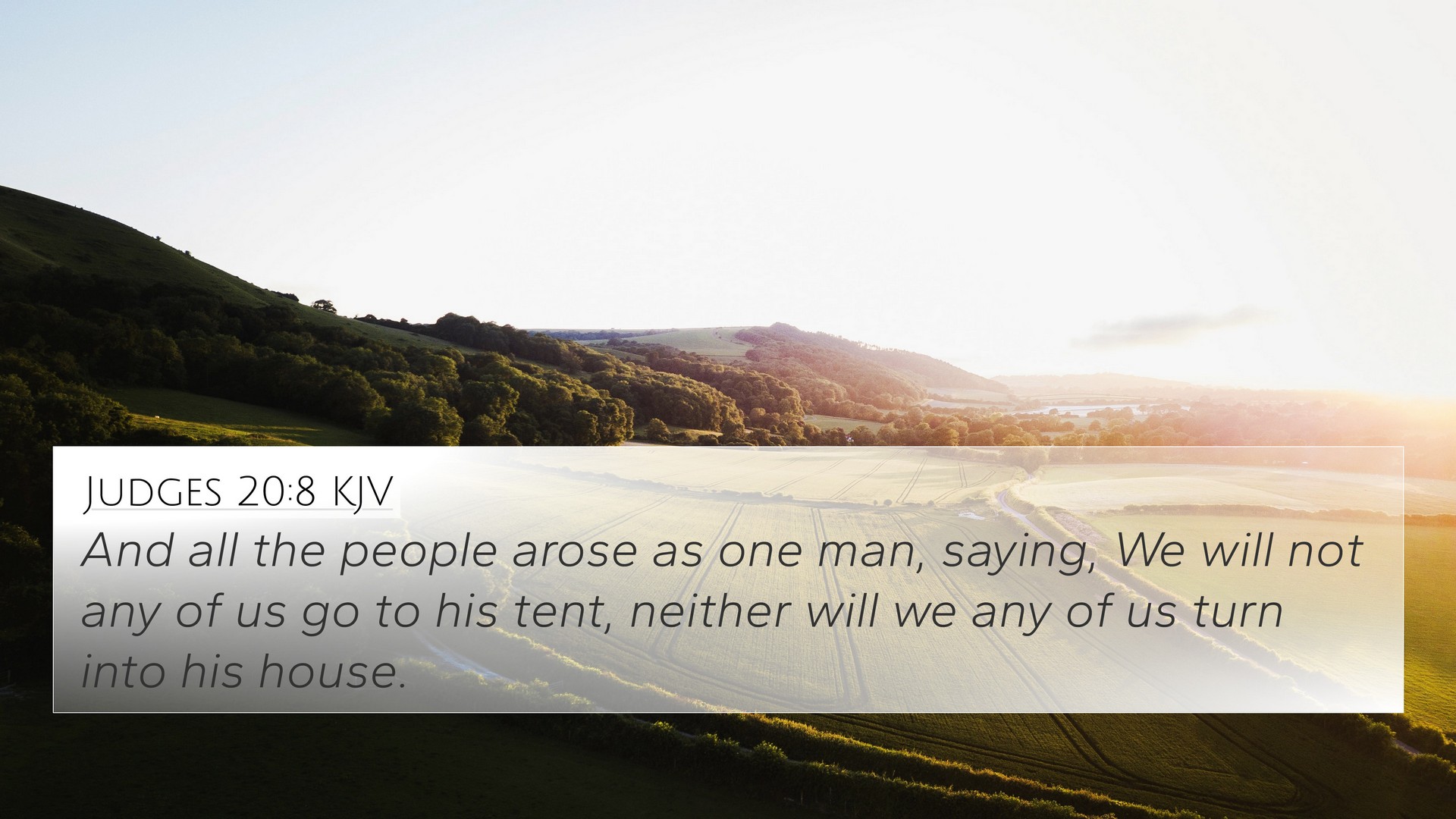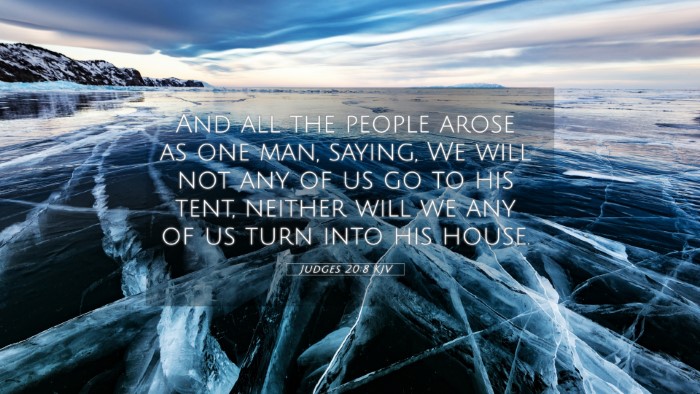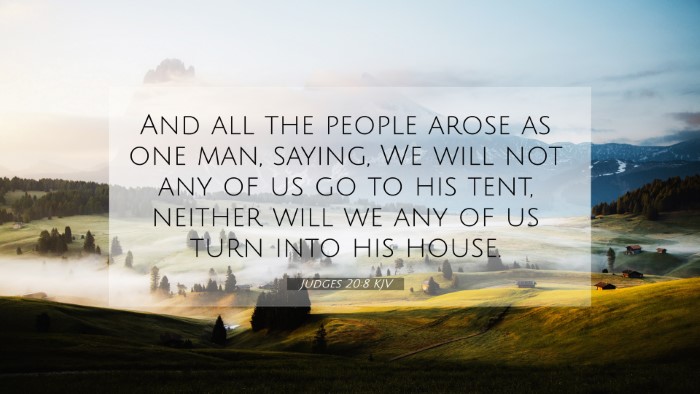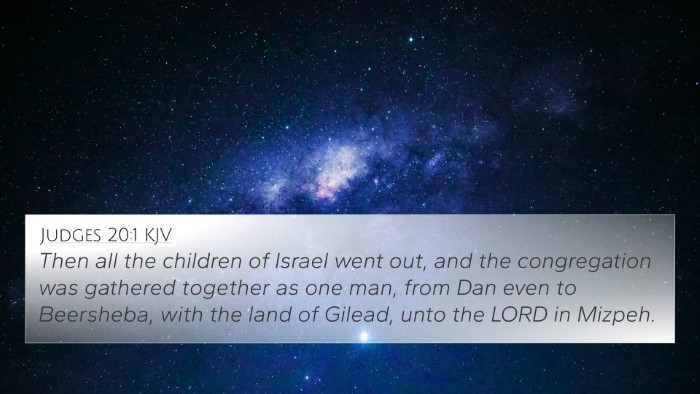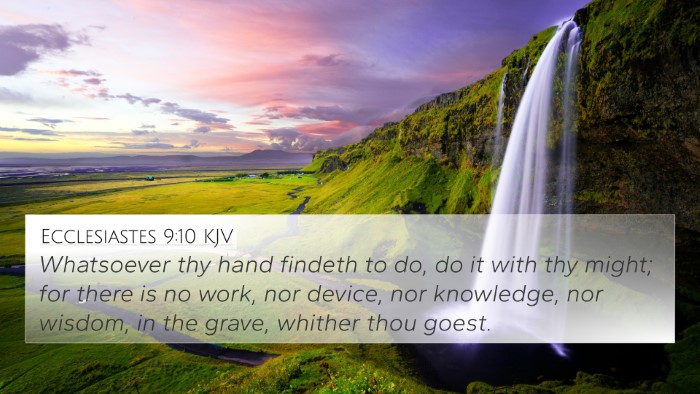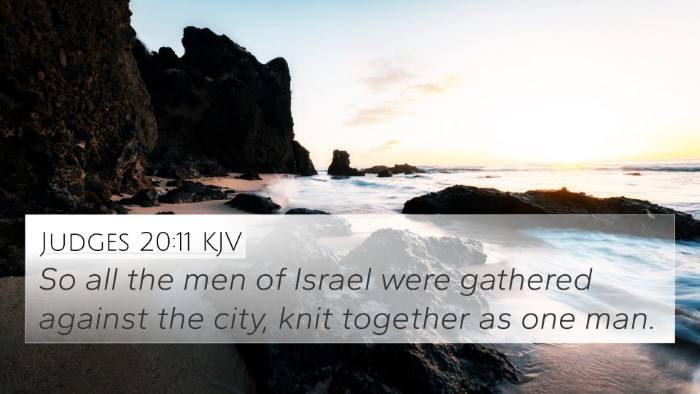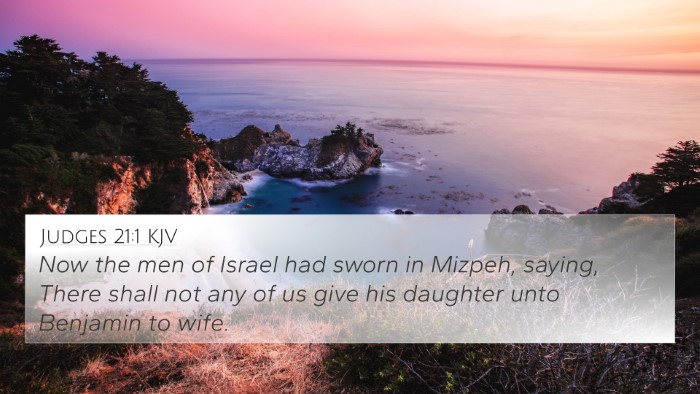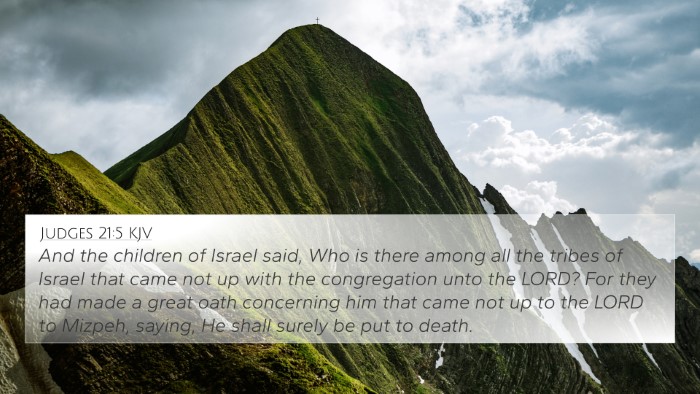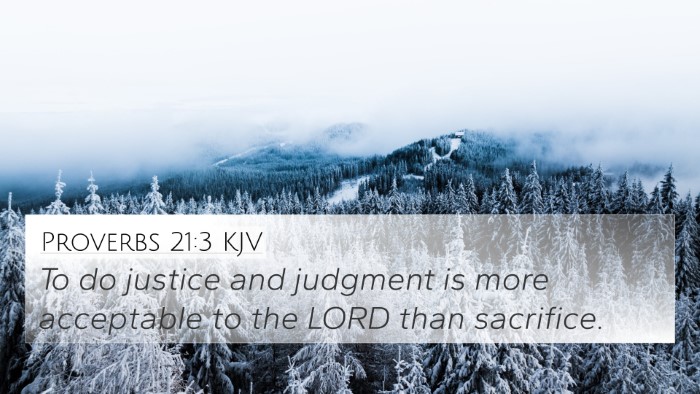Bible Verse Meaning for Judges 20:8
Judges 20:8: “And all the people arose as one man, saying, We will not any of us go to his tent, neither will we any of us turn into his house.”
Overview
This verse occurs within a critical narrative in the Book of Judges, illustrating a pivotal moment when the tribes of Israel united against the wickedness occurring in Gibeah. They resolved collectively to confront the sin that had afflicted their community.
Interpretation of Judges 20:8
According to many public domain commentaries, this verse signifies total determination and unity among the Israelite tribes. They present themselves as a singular entity, emphasizing the gravity of their purpose. Here are some key insights:
-
Matthew Henry: This commentary highlights the importance of unity and collective responsibility in confronting moral failure. The phrase "as one man" underlines their resolve to prioritize communal welfare over personal comforts.
-
Albert Barnes: Barnes notes that the Israelites refused to retreat to their homes until justice was enacted. This reflects a strong commitment to addressing sin that they perceived as a threat to their societal integrity.
-
Adam Clarke: Clarke explains that this unity indicates a significant moral awakening among the Israelites, showing their readiness to take drastic measures against sin, demonstrating their dedication to righteousness.
Thematic Insights
This verse can lead to a deeper understanding through thematic Bible verse connections. Here are some connections and cross-references:
- Genesis 11:6 - Unity of purpose leads to collective action.
- 1 Corinthians 1:10 - Call for unity among believers.
- Hebrews 10:24-25 - Encouragement to spur one another toward love and good deeds.
- Matthew 18:20 - The principle of Christ's presence among united believers.
- Acts 4:32 - The early church's unity mirrors the collective effort seen in Judges.
- Philippians 1:27 - Striving together for the faith of the gospel.
- Psalms 133:1 - The preciousness of brethren dwelling together in unity.
Cross-Referencing Biblical Texts
By exploring these connections, one can identify broader theological implications and understand the significance of unity in Scripture. The theme of unified action against wrongdoing and the pursuit of righteousness transcends individual narratives.
Applications for Today
This verse has essential applications for contemporary believers. It challenges individuals to consider how they collectively address moral issues within church communities or society. The historical account encourages modern readers to value unity and collective action when faced with challenges to righteousness.
Conclusion
Judges 20:8 serves as a poignant reminder of the power of unified action in confronting sin and injustice. Furthermore, it emphasizes the importance of community in the pursuit of righteousness, encapsulating themes prevalent throughout the Bible. For those studying this verse, considering the cross-references offers further depth and understanding of the biblical narrative on unity and moral accountability.
Tools for Bible Cross-Referencing
To engage more deeply with scripture and enhance understanding, employ tools such as:
- Bible concordance
- Bible cross-reference guide
- Cross-reference Bible study platforms
- Bible reference resources for thematic studies
Further Study Suggestions
For those interested in further study, consider:
- How to find cross-references in the Bible effectively.
- Identifying connections between Old and New Testament teachings.
- Comparative study of Pauline epistles in relation to themes in Judges.
